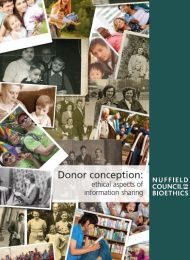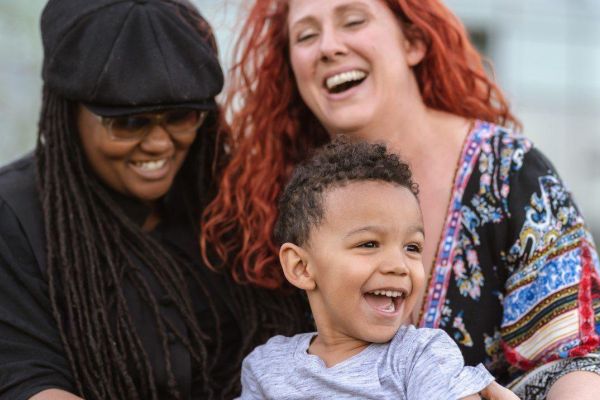Donor conception: ethical aspects of information sharing
Report
Published 17/04/2013

When thinking about the issue of information sharing between people affected by donor conception, we should start with a focus on people and relationships.
Interests and rights
Everyone involved in donor conception has interests in how information is shared. These interests may include:
- the importance placed by many on knowledge of (and contact with) people with whom they have close biological links
- the value placed on having children and bringing them up without undue interference by others
- the privacy associated with personal information
- the importance placed on keeping promises and honouring contracts
These interests are often expressed in terms of ‘rights’. However, by using instead the language of ‘interests’, we can first think about what we know about those interests, and then consider separately whether others have responsibilities to make sure those interests are protected and promoted.
It is not the role of this Working Party to make any judgment as to how important these interests ought to be in any given situation. However, the extent to which these interests are widely shared is relevant to the degree of responsibility that they may create in others. In turn, this is relevant in determining what action may be demanded on the part of public bodies to protect or promote these interests.
Values
These interests arise in the context of relationships, and values that are widely regarded as important in contemporary family relationships in the UK include trust and honesty. ‘Openness’ in families is also valued by many. Openness, however, is not necessarily the same as honesty. In particular, choosing not to disclose private information is not usually considered to be dishonest.
Difficulties arise when talking about openness in donor conception because information may at the same time be both private information about the parents or donor, and information about the donor-conceived person.
We conclude
Openness about donor conception should not be regarded as valuable in itself, but rather as important in so far as it improves family relationships, and adds to the well-being both of parents and of donor-conceived people.

Share